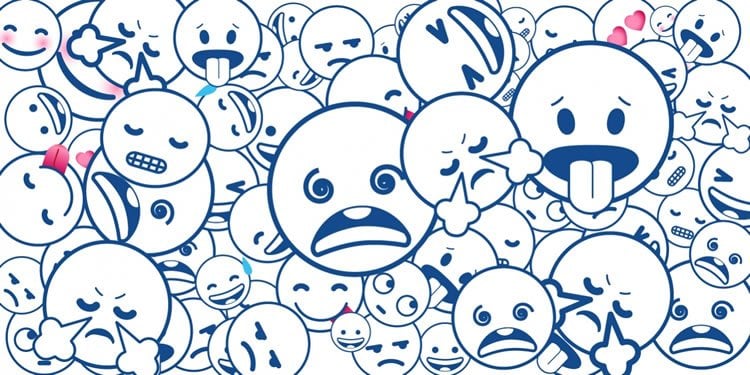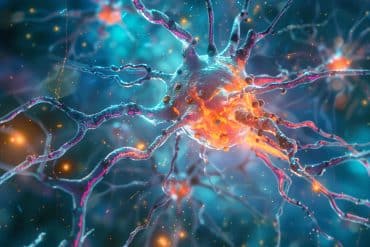Summary: Frequent angry outbursts in children may be a sign of deeper mental health issues, researchers report.
Source: Wellesley College.
Irritability is quite common in young children, but when angry outbursts are frequent and sustained over a long period of time, they could be a sign of deeper mental health issues.
For years, researchers have been trying to determine the causes of irritability and how it relates to bipolar disorder, autism spectrum disorder, and attention deficit disorder.
Christen Deveney, assistant professor of psychology at Wellesley, is working “to improve our understanding of the neurocognitive basis of irritability in order to inform treatments and improve quality of life for these children.”
Children suffering from irritability have low thresholds for frustration, according to Deveney. “It doesn’t take much to provoke them,” she said. “Parents and those who are around them feel like they have to walk on eggshells. The magnitude of the outburst is out of proportion to the provocation. It is difficult for them to calm themselves down. These outbursts occur multiple times a week.”
Deveney said the outbursts are challenging for families and can make it difficult for children to maintain relationships and do well in school. Children suffering from irritability are at increased risk for developing anxiety and depression in adulthood.
Despite its prevalence and its implications in diagnoses of other disorders, research into irritability and its impact on children and their families is still developing.
Deveney’s ongoing work with children and young adults has involved various data collection techniques, such as recording data on behaviors like accuracy and response time as the subjects performed cognitive tasks. She also records measures of brain activity using various neuroimaging techniques.
Deveney and her colleagues in the field hope that measures of brain activity will provide critical insight into the factors that cause irritability and its relationship to other disorders.

In a recently published study in the journal Developmental Psychobiology, Deveney and collaborators including Lauren Wakschlag of Northwestern University and Margaret Briggs-Gowan of the University of Connecticut examined the relationship between irritability and neural markers of response inhibition in young children. As part of the study, preschoolers were asked to play a game that involved pressing a button on a key pad when certain pictures appeared on a computer screen.
Occasionally, a picture appeared that signaled the child not to press the button, which can be tricky for young children. Preschoolers with high levels of irritability had a harder time stopping themselves from pressing buttons when they were frustrated. Their brain activity suggested they were expending more effort to withhold a response than children with lower levels of irritability, said Deveney.
Source: Casey Bayer – Wellesley College
Publisher: Organized by NeuroscienceNews.com.
Image Source: NeuroscienceNews.com image is credited to Wellesley College.
Original Research: Abstract for “Temporally sensitive neural measures of inhibition in preschool children across a spectrum of irritabilitys” by Christen M. Deveney, Margaret J. Briggs‐Gowan, David Pagliaccio, Christopher R. Estabrook, Elvira Zobel, James L. Burns, Elizabeth S. Norton, Daniel S. Pine, Melissa A. Brotman, Ellen Leibenluft, and Lauren S. Wakschlag in Developmental Psychobiology. Published October 17 2018.
doi:10.1002/dev.21792
[cbtabs][cbtab title=”MLA”]Wellesley College”Irritability in Young Children May Be a Sign of Deeper Mental Health Issue.” NeuroscienceNews. NeuroscienceNews, 29 October 2018.
<https://neurosciencenews.com/irritability-mental-health-10115/>.[/cbtab][cbtab title=”APA”]Wellesley College(2018, October 29). Irritability in Young Children May Be a Sign of Deeper Mental Health Issue. NeuroscienceNews. Retrieved October 29, 2018 from https://neurosciencenews.com/irritability-mental-health-10115/[/cbtab][cbtab title=”Chicago”]Wellesley College”Irritability in Young Children May Be a Sign of Deeper Mental Health Issue.” https://neurosciencenews.com/irritability-mental-health-10115/ (accessed October 29, 2018).[/cbtab][/cbtabs]
Abstract
Temporally sensitive neural measures of inhibition in preschool children across a spectrum of irritability
Irritability is a prominent feature of chronic mental disorders and a developmental marker of their early emergence. The most salient feature of irritability in early childhood is temper tantrums. While temper tantrums are normative in young children, they can be clinically concerning when they are dysregulated, very frequent, and/or occur in unexpected contexts. The present study uses behavioral and event‐related brain potential (ERP) measures to characterize the relationship between irritability and neural markers of response inhibition in very young children. Forty‐six children (ages 4–7 years) completed a go/no‐go task under nonfrustrating and frustrating conditions. ERPs elicited by go and no‐go stimuli were examined as a function of frustration condition and irritability, operationalized via the well‐validated Temper Loss scale of the Multidimensional Assessment Profile of Disruptive Behavior (MAP‐DB). Higher Temper Loss scores were associated with larger N2no‐go amplitudes and reduced no‐go accuracy during frustration. This suggests that higher levels of irritability corresponded with increased conflict monitoring and poorer task performance during frustration. These findings add to a developing literature identifying the neurocognitive markers of varying levels of irritability in young children.






